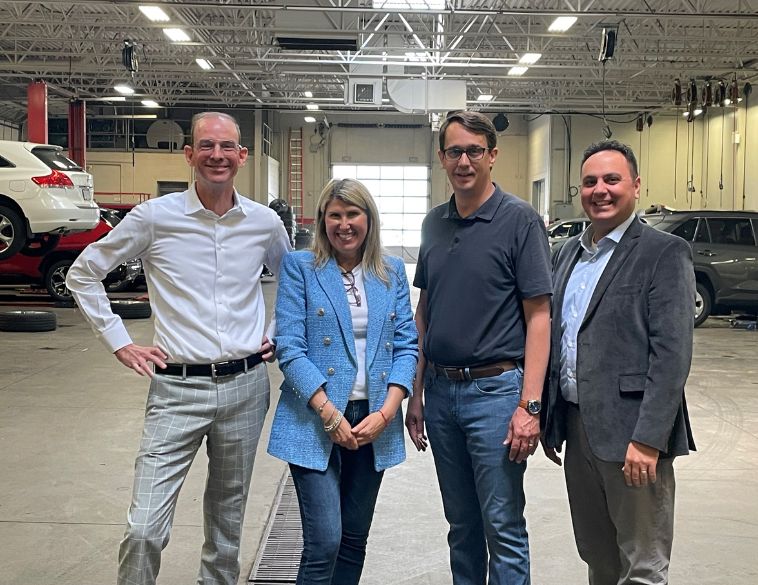Collaborative effort between MVRO and the Ontario government delivers big progress when it comes to supporting and developing automotive technicians.
For many years, dealers have struggled in attracting qualified automotive service technicians and apprentices. And, over the last decade, that skill shortage has increased. Nevertheless, there are encouraging signs, namely historic skilled trades reforms in the province of Ontario which will make it easier to recruit technicians and help end the unfair stigma that has plagued the sector.
Major milestone
The Motor Vehicle Retailers of Ontario (previously the Trillium Automobile Dealers Association) has long recognized the importance of addressing this issue. Working collaboratively with Ontario’s Minister for Economic Development, Vic Fedeli, Education Minister Stephen Leece and Labour Minister Monte McNaughton, the MVRO is celebrating several monumental new reforms in the province. These include:
- A $330,000 investment for Canadore College’s EV Training Centre to give students hands-on experience repairing electric vehicles.
- Doubling the number of economic immigrants Ontario selects to over 18,000 in 2025 to help solve the skilled trades labour shortage. Ontario now has a greater say over its Ontario Immigrant Nominee Program and is better able to set up newcomers for a successful transition to their new life in Ontario.
- Consulting to allow students in grade 11 to transition to a full-time, skilled trades apprenticeship program. Upon receiving their Certificate of Apprenticeship, these young workers can apply for their Ontario Secondary School Diploma as mature students.
- Implementing a new high school graduation requirement. Starting with students entering Grade 9 in September 2024, all students will now be required to earn a Grade 9 or 10 Technological Education credit as part of their Ontario Secondary School Diploma.
- A $4.7 million investment to help over 360 people land full-time jobs in the province’s growing automotive manufacturing sector. These free programs include preparing automotive technicians and those interested in the industry for work in the emerging electric vehicle field.
These reforms are a direct result of Ministers Fedeli, Leece and McNaughton listening to the concerns of new car dealers across the province. They understand that Ontario needs to support current and future automotive workers—those who will not only be servicing the vehicles of tomorrow but those that will also design and build them.
As Minister Fedeli, noted, Ontario has attracted more than $25 billion in automotive and electric vehicle battery-related investments over the last two and half years. By working with organizations like MVRO, the province is moving forward in not only strengthening the automotive supply chain but securing future vehicle production in Ontario, which will lead to thousands of well-paying jobs. This is really encouraging news and helps cement Ontario’s role as the centre for automotive research, development and production, as well as a major driver of the national economy.

Backbone of the economy
Minister McNaughton, referenced the importance of skilled automotive workers, referring to them as “the backbone of our economy. Under the leadership of Premier [Doug] Ford,” he stated, “our government will continue to invest in innovative training and common-sense changes to prepare the next generation for these rewarding and well-paying careers.”
Minister Lecce added: “Our government’s mission is to ensure students learn skills that will lead them to ultimately better jobs and bigger pay cheques. All students will benefit from a greater emphasis on hands-on learning experiences and technical skills in the classroom so they can graduate with a competitive advantage in this country.”
While there are many challenges facing the automotive industry over the coming years, these historic initiatives will help ensure our province and sector has a bright future and a major role to play in providing viable, sustainable economic growth and transportation needs, not only at a provincial level but a national and global one as well.



